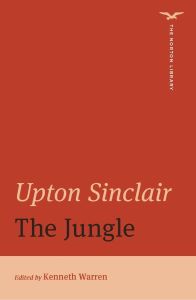內容簡介
When it was first published in 1906, The Jungle exposed the inhumane conditions of Chicago’s stockyards and the laborer’s struggle against industry and “wage slavery.” It was an immediate bestseller and led to new regulations that forever changed workers’ rights and the meatpacking industry. A direct descendant of Dickens’s Hard Times, it remains the most influential workingman’s novel in American literature.
For more than seventy years, Penguin has been the leading publisher of classic literature in the English-speaking world. With more than 1,700 titles, Penguin Classics represents a global bookshelf of the best works throughout history and across genres and disciplines. Readers trust the series to provide authoritative texts enhanced by introductions and notes by distinguished scholars and contemporary authors, as well as up-to-date translations by award-winning translators.
作者介紹
Upton Sinclair was born on September 20, 1878, in Baltimore, Maryland, the only child of a poor liquor salesman and his wife. He attended both the College of the City of New York and Columbia University. In 1906, Sinclair published The Jungle, a muckraking exposé of Chicago’s meatpacking district. An immediate bestseller, it prompted widespread public outrage and led to the passage of the Pure Food and Drugs Act of 1906. An ardent socialist and political activist, Sinclair ran for office several times. His large body of work includes the novels King Coal (1917), The Brass Check (1919), and the Pulitzer Prize–winning Dragon’s Teeth (1942). He died on November 25, 1968, in Bound Brook, New Jersey.
Kenneth W. Warren is Fairfax M. Cone Distinguished Service Professor in the Department of English at the University of Chicago. He is the author of Black and White Strangers: Race and American Literary Realism?(1993), So Black and Blue: Ralph Ellison and the Occasion of Criticism?(2003), and What Was African American Literature??(2011).
